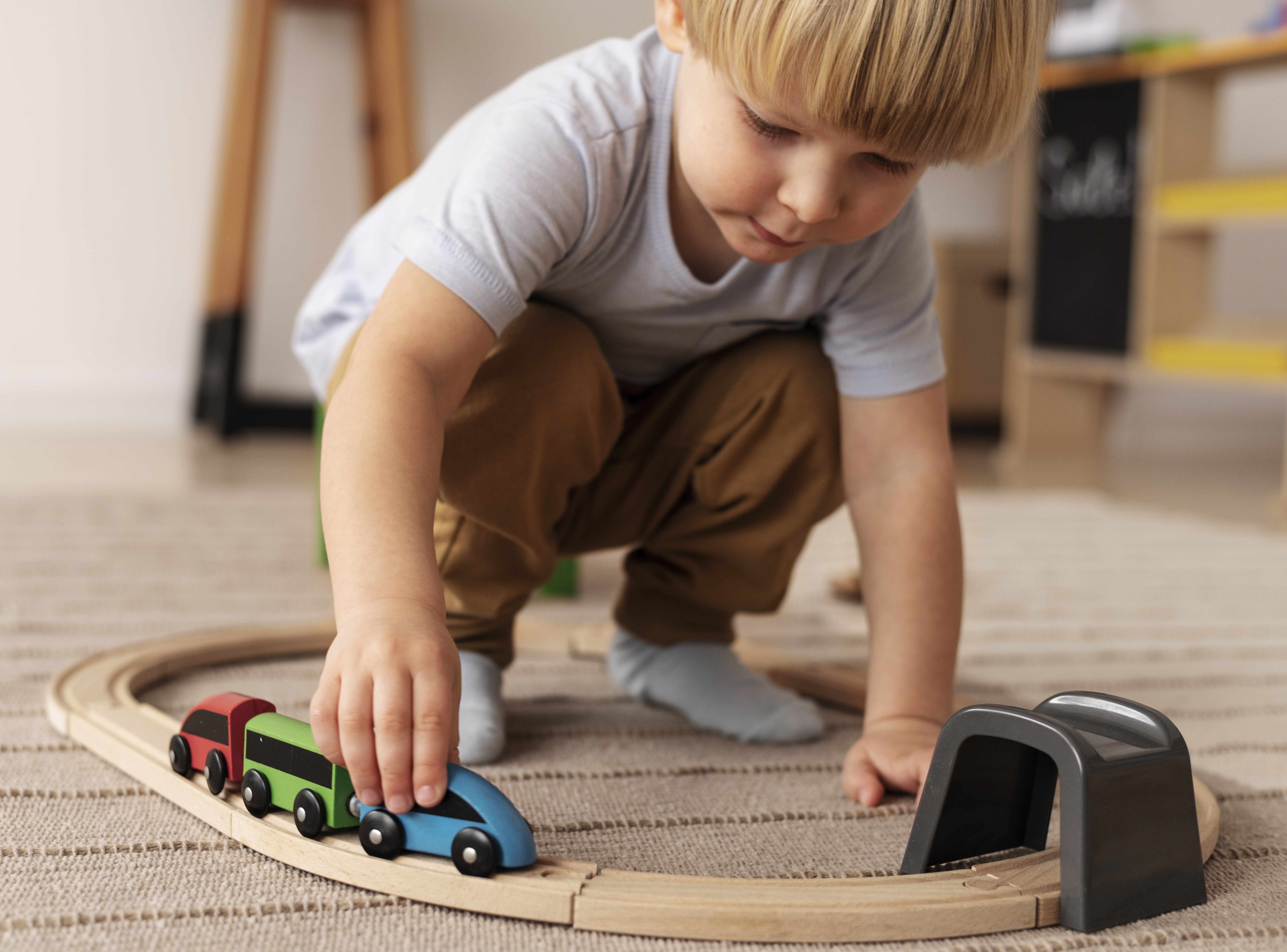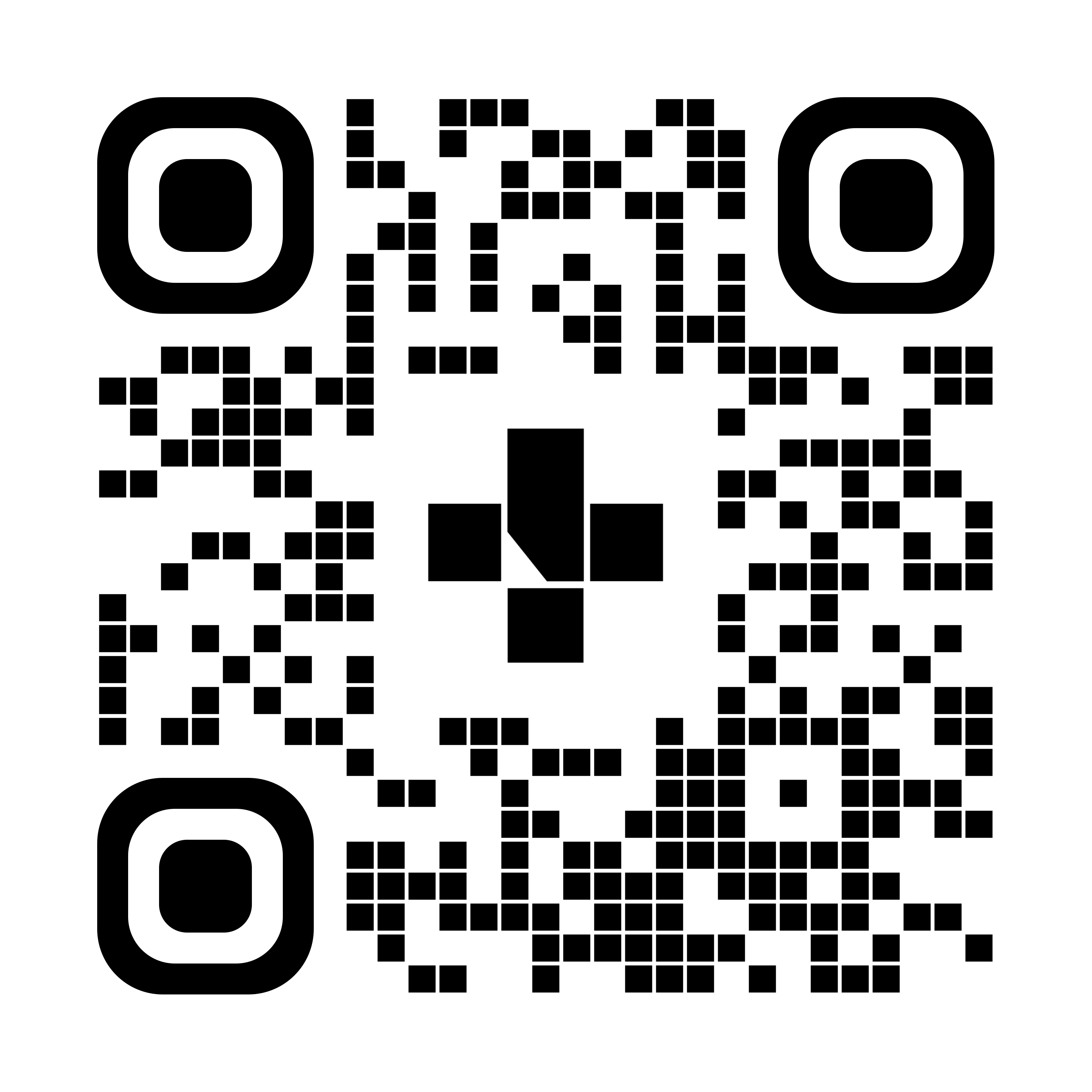Fine Motor Development
2 years

Photo credit: Freepik.com
Your child is now running, climbing, and using their body and hands with more control. They begin to use fine motor skills to explore and problem solve as their curiosity grows. They may want to do things on their own.
Your 2-year-old
At this stage, your child develops fine motor skills through play and learning daily living skills. It’s common for them to use either hand but they might also start to hold and use a spoon with the same hand. You’ll notice your child place, open, twist, and turn things to figure out how they work. They’ll try to dig in the sand, guide a train on the track, and place animals in a toy barn. They might insist on turning the pages in a board book when you read to them. They’ll discover that cars or sticks dragged in the sand leave marks. They might also explore making scribbles and lines with crayons or markers.
Your child is learning to use their hands for daily living skills. They’re still messy, but they’re learning to scoop food with a spoon and bring it to their mouth without spilling too much. At this stage, if you give them a fork, they’re more likely to use it like a spoon. They’re getting better at holding an open cup and bringing it to their mouth with less spilling. Your child tries to help with dressing by taking off their pants, socks, or jacket. They’ll still need your help to put them on. They might try to put on shoes and probably won’t get them on the right feet. Your child is also learning to control hand movements to wash and wipe their hands.
Everyday play and practice
Offer your child toys and objects of different sizes and shapes to strengthen their hand muscles. They can use their hands, spoons, or cups to scoop snow, sand, or water. They can place things into a muffin tray or an egg carton. To build your child’s fine motor skills:
- Encourage play with toys that can be taken apart and put back together, like Lego or simple puzzles.
- Give them books with flaps and tabs.
Offer your child opportunities to try everyday activities and offer help when they struggle.
- Encourage your child to eat with their fingers, or with a spoon, and drink from an open cup. It might be messy, but it’s important to develop these skills. You can also put snacks into a muffin pan or containers that are easy to open.
- Offer slip-on shoes or boots for them to practice dressing.
- Offer sponges and washcloths so your child can wipe their body, arms, and legs in the bath.
Your child copies your actions as you do everyday activities around the home. If they show interest, let them try what you’re doing. They can sweep with a brush and dustpan or put clothes into the laundry bin. Remember, they won’t be able to do these activities for very long or very well.
Help build your child’s fine motor skills
Think about:
- What everyday objects they can use to scoop water or snow.
- What small containers can be used to hold snacks.
- When it works best for you to let them to help with dressing or brushing their teeth.
Be safe
- Keep your child safe from falls.
- Avoid choking hazards, like small objects or toys, with parts that can easily break or fall off.
- Make sure toys and objects are made with safe materials and can be cleaned, washed, or wiped.
When should you call for help?
Your child may need more support if they:
- don’t use 2 fingers to hold small objects
- don’t use a spoon to eat or try to remove simple clothes
For more information or help with fine motor struggles, contact:
- Health Link at 811
- An occupational therapist at your local pediatric community rehabilitation service
- Your doctor, public health nurse, or other healthcare provider
Resources
To see this information online and learn more, visit MyHealth.Alberta.ca/health/aftercareinformation/pages/conditions.aspx?hwid=custom.ab_fine_motor_dev_2_years_inst.

For 24/7 nurse advice and general health information call Health Link at 811.
Current as of: August 19, 2025
Author: Pediatric Rehabilitation Services, Alberta Health Services
This material is not a substitute for the advice of a qualified health professional. This material is intended for general information only and is provided on an "as is", "where is" basis. Although reasonable efforts were made to confirm the accuracy of the information, Alberta Health Services does not make any representation or warranty, express, implied or statutory, as to the accuracy, reliability, completeness, applicability or fitness for a particular purpose of such information. Alberta Health Services expressly disclaims all liability for the use of these materials, and for any claims, actions, demands or suits arising from such use.
